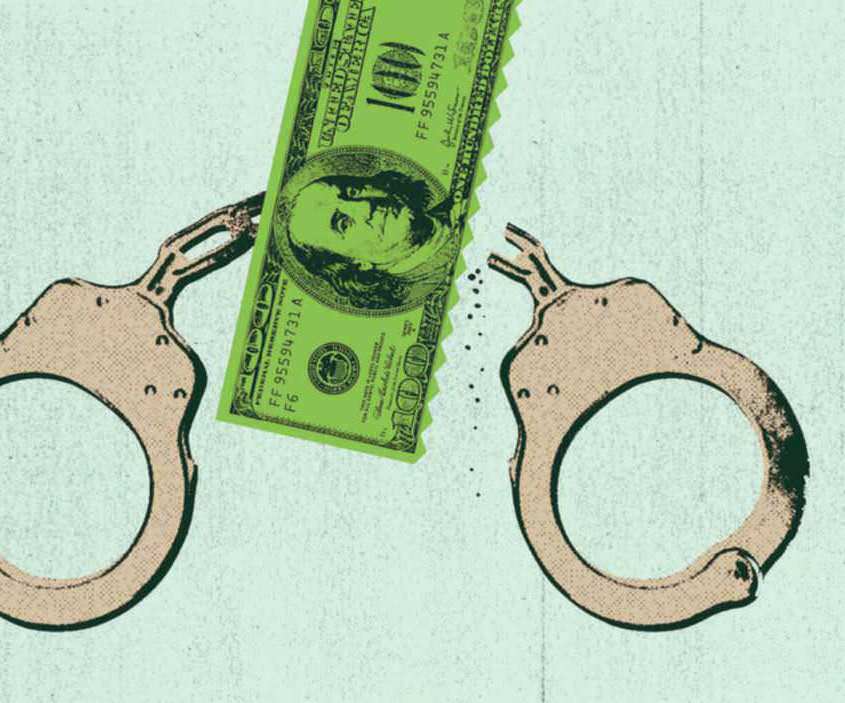
On May 27 , in her first major prosecutorial act as the new U.S. attorney general, Loretta Lynch unsealed a 47-count indictment against nine FIFA officials and another five corporate executives. She was passionate about their wrongdoing. “The indictment alleges corruption that is rampant, systemic, and deep-rooted both abroad and here in the United States,” she said. “Today’s action makes clear that this Department of Justice intends to end any such corrupt practices, to root out misconduct,and to bring wrongdoers to justice.”
Lost in the hoopla surrounding the event was a depressing fact. Lynch and her predecessor, Eric Holder, appear to have turned the page on a more relevant vein of wrongdoing: the profligate and dishonest behavior of Wall Street bankers, traders, and executives in the years leading up to the 2008 financial crisis. How we arrived at a place where Wall Street misdeeds go virtually unpunished while soccer executives in Switzerland get arrested is murky at best. But the legal window for punishing Wall Street bankers for fraudulent actions that contributed to the 2008 crash has just about closed. It seems an apt time to ask: In the biggest picture, what justice has been achieved?
Since 2009, 49 financial institutions have paid various government entities and private plaintiffs nearly $190 billion in fines and settlements, according to an analysis by the investment bank Keefe, Bruyette & Woods. That may seem like a big number, but the money has come from shareholders, not individual bankers. (Settlements were levied on corporations, not specific employees, and paid out as corporate expenses—in some cases, tax-deductible ones.) In early 2014, just weeks after Jamie Dimon, the CEO of JPMorgan Chase, settled out of court with the Justice Department, the bank’s board of directors gave him a 74 percent raise, bringing his salary to $20 million.
This story is from the September 2015 edition of The Atlantic.
Start your 7-day Magzter GOLD free trial to access thousands of curated premium stories, and 8,500+ magazines and newspapers.
Already a subscriber ? Sign In
This story is from the September 2015 edition of The Atlantic.
Start your 7-day Magzter GOLD free trial to access thousands of curated premium stories, and 8,500+ magazines and newspapers.
Already a subscriber? Sign In

After the Miracle
Cystic fibrosis once guaranteed an early deathbut a medical breakthrough has given many patients a chance to live decades longer than expected. What do they do now?

WILLIAM WHITWORTH 1937-2024
WILLIAM WHITWORTH, the editor of The Atlantic from 1980 to 1999, had a soft voice and an Arkansas accent that decades of living in New York and New England never much eroded.

Christine Blasey Ford Testifies Again
Her new memoir doubles as a modern-day horror story.

Is Theo Von the Next Joe Rogan?
Or is he something else entirely?

Orwell's Escape
Why the author repaired to the remote Isle of Jura to write his masterpiece, 1984

What's So Bad About Asking Where Humans Came From?
Human origin stories have often been used for nefarious purposes. That doesn't mean they are worthless.

Miranda's Last Gift
When our daughter died suddenly, she left us with grief, memories and Ringo.

BEFORE FACEBOOK, THERE WAS Black Planet
An alternative history of the social web

CLASH OF THE PATRIARCHS
A hard-line Russian bishop backed by the political might of the Kremlin could split the Orthodox Church in two.

THE MAN WHO DIED FOR THE LIBERAL ARTS
Chugging through Pacific waters in February 1942, the USS Crescent City was ferrying construction equipment and Navy personnel to Pearl Harbor, dispatched there to assist in repairing the severely damaged naval base after the Japanese attack.